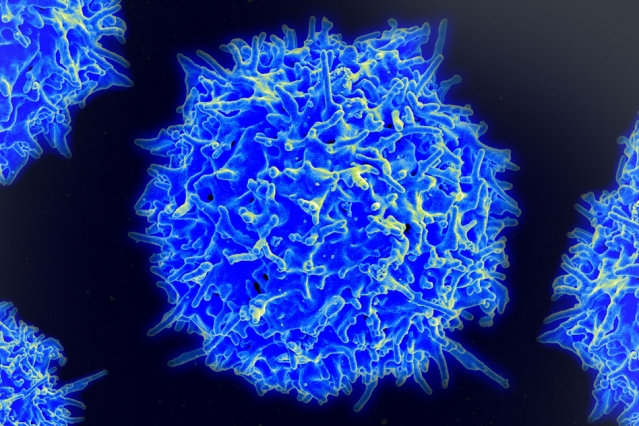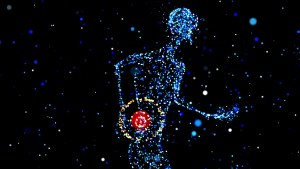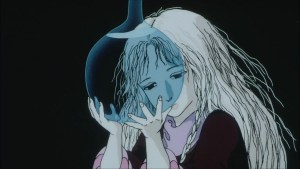Kathryn Cai
Reviews of Chang-rae Lee’s 2014 novel On Such a Full Sea note its “bureaucratic aesthetic,”[1] its unsatisfactory narrative trajectory in which nothing seems to build, and Fan as an opaque, “monochromatic,”[2] and ultimately unsatisfactory heroine lacking in interiority,[3] particularly compared to the “adventure” heroines, such as Katniss Everdeen, that populate conventional heroic and dystopic narratives. These reviews point to a flattened affect in both the third-person narration of the novel and Fan’s comportment that is baffling when viewed through the lens of resistance as active and heroic.
Fan, however, embodies a curious convergence of orientalized and feminized tropes that reflect the kinds of distributed, inchoate agencies I noted in my earlier consideration of female cyborg figures. Among other orientalist tropes, longstanding stereotypes have historically characterized Asian figures as unfeeling, robot-like workers who need minimal sustenance.[4] Lee’s novel channels and transforms this figure of the Asian worker in the muted affects in which the novel traffics. These affects, I suggest, constitute a disaggregated, distributed agency that emerges through the body and shares kinship with the feminized cyborg agencies that Donna Haraway begins to posit. Here I wish to elaborate on an agency that models the cellular or molecular; these cyborg agencies are thus nothing more or less than the alien agencies and energies that circulate within and between our own bodies.
Lee’s novel imagines a future dystopian society in which production towns, called facilities, manufacture and grow products for wealthy, elite Charter towns; in between are the ungoverned and lawless open counties. The protagonist, Fan, has left the facility town she and her boyfriend, Reg, are from to search for him, and she later confirms that he was taken from B-Mor by pharmaceutical corporations seeking a cure for “C,” a disease, ostensibly cancer, that plagues all the inhabitants of this future world. Reg, however, is strangely C-free, and these corporations are holding him in an unknown testing facility to determine how and why. Fan embarks on quest a to find him, and her wandering journey carries her into unexpected encounters throughout the open counties and Charters.
The novel notes many times throughout both that Fan is completely ordinary and that other characters view her as perceptibly different. The narrator insists that Fan is “one of the ranks” and “perfectly ordinary”:[5] she is “not quite the champion we would normally sing; she is not the heroine who wields the great sword; she is not the bearer of wisdom and light; she does not head the growing column, leading a new march,” characterizations marked only by what Fan is not and in direct contrast to a model of agency that is revolutionary. At the same time, however, multiple characters in the novel remark on Fan’s difference without specifying the qualities or conditions that make her different. Fan eventually finds herself in the Charter household of Mr. Leo and Ms. Cathy, who rescues Fan from Mr. Leo’s sexual predation only to lock her in with the other young Asian girls whom she has similarly rescued and forcibly kept as companions. Though Fan explicitly does not wish to disrupt the pattern of the girls’ lives, they nevertheless become committed to helping Fan escape. When two of the girls contrive to become ill to create an opportunity for Fan, a doctor who responds to the emergency explicitly singles Fan out from the others without explanation and tells her that “[y]ou don’t have to stay here if you aren’t hers to keep.”[6] Similarly, Mala, a household helper in Mr. Leo and Ms. Cathy’s home eventually tells Fan that she could “see [that Fan was] different.”[7] Fan thus embodies a “difference” that is characterized by negativity and nevertheless leaves a trace that changes something from within a situation, rather than the active resistance and overcoming of the “heroine who wields a great sword” from the outside.
Her difference is resolutely affective and, importantly, embodied: Fan is “an essentially physical being, rather than some ornate bundle of notions, wishes, and dreams.”[8] In B-Mor, Fan was a talented diver who cared for tanks of fish. She was able to hold her breath for prolonged periods of time and enter a state in which she was clearly different from the fish but also one of them. Fan’s talent for this sameness with difference throughout situations with human and nonhuman entities thus suggests a connection between Fan’s embodied affective abilities and her body’s biological processes. Her ability to become part of a social situation and change it from within can be viewed as an extension of her body’s metabolism of oxygen as it is submerged in water to become a part of the fish’s environment.
Fan’s bodily capacities bring together theorizations of biological agencies in relation to capital and of embodied affect. Eugene Thacker suggests that considering the “biomaterial labor” of biological entities such as cells, molecules, and enzymes might offer a different sort of “resistance” to the “life without agency” and the cleaving of subjecthood from these parts that generate profit for multinational biotech corporations.[9] This attention to the elusive, not fully known or knowable processes in which these entities engage that are simultaneously harnessed for profit suggests a model for agency that does not depend on fully intentional and rational subjectivity or even the possession of a mind that we would recognize as human. This biomaterial labor thus presents a limit case of theorizations of agency beyond liberal humanist conceptions of resistance and fully coherent human subjectivity; these cell and molecule bodies can affect unexpected changes not just among but also within bodies, separately from intention or even conscious awareness. As the novel progresses, Fan continues to catalyze changes that are difficult to directly attribute to her even as they unmistakably bear her trace: the sense that “something is different.”[10] We might thus think of Fan’s influence as cellular, or molecular, like a cancer that is growing and spreading. Without flattening important differences in lived experiences, power, and embodied identity, these cellular and molecular agencies also direct our attention to our own cyborg natures and the unexpected consequences they might already be generating in the world, sometimes without our full awareness.
Featured Image courtesy of NIAID
[1] Christopher T. Fan, “Future Islands.” The New Inquiry 19 May 2014.
[2] Maureen Corrigan, “Chang-rae Lee Stretches For Dystopic Drama, But Doesn’t Quite Reach.” NPR 14 January 2014.
[3] Fan, “Future Islands.”
[4] For more elaboration of Lee’s engagement with the figure of the Asian worker and orientalism, see Christopher T. Fan’s essay “Animacy at the End of History in Changrae Lee’s On Such a Full Sea,” American Quarterly 69, no. 3 (2017): 675-96.
[5] Chang-rae Lee, On Such a Full Sea. Penguin, 2014: 198.
[6] Ibid., 238.
[7] Ibid., 242.
[8] Ibid., 243.
[9] Eugene Thacker, The Global Genome: Biotechnology, Politics, and Culture. MIT Press, 2005: 207; 204.
[10] Lee, 228.



